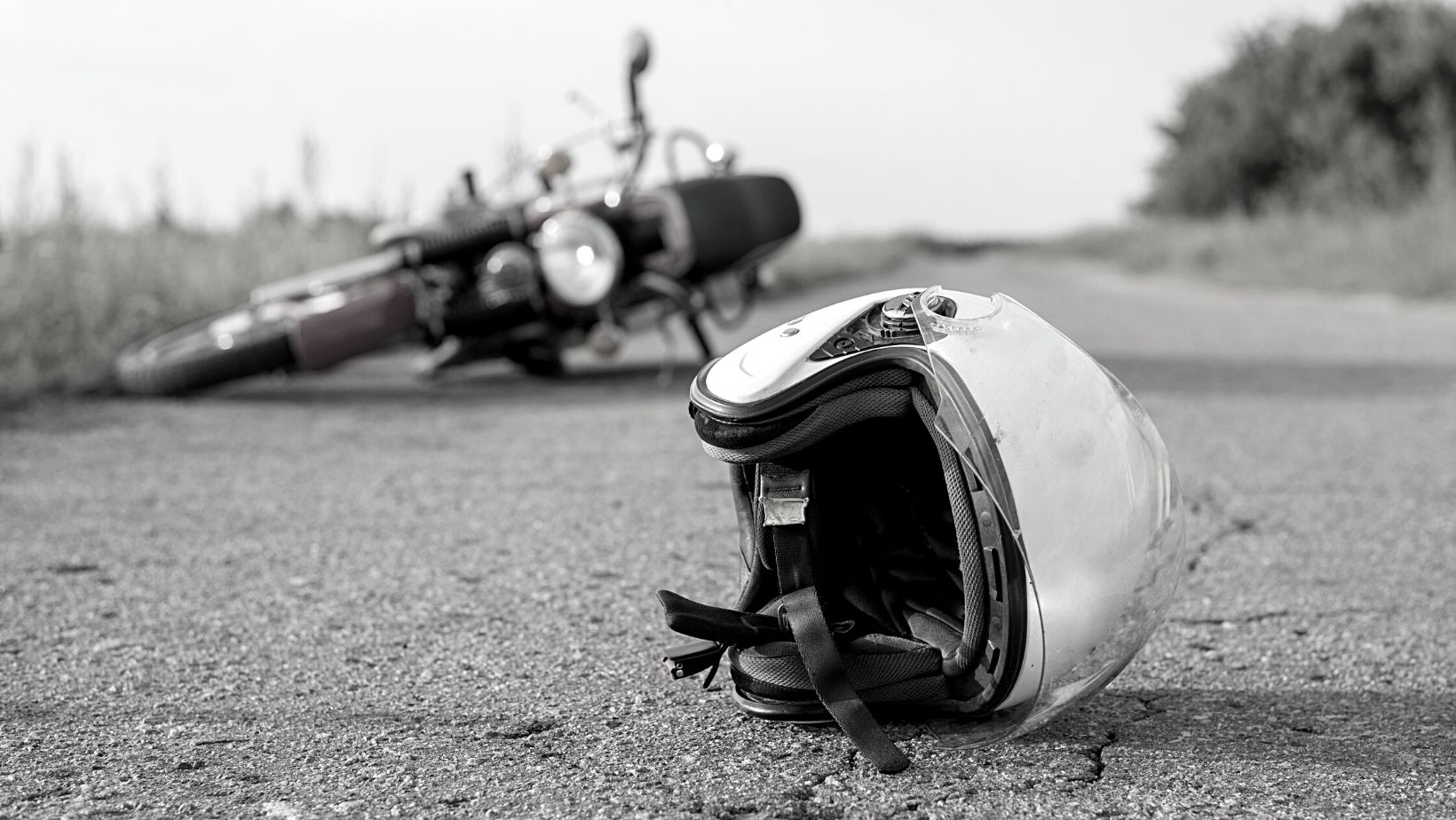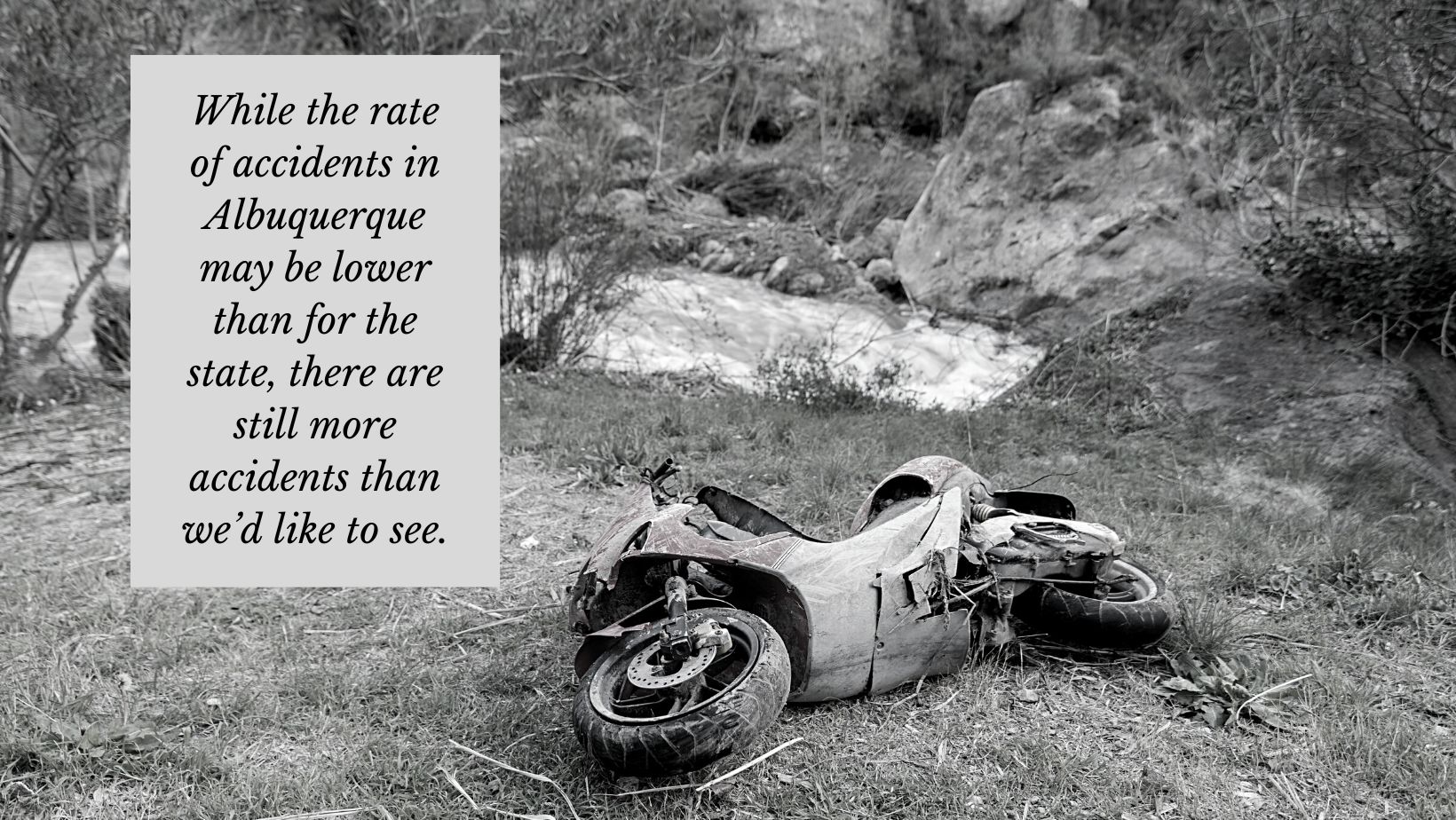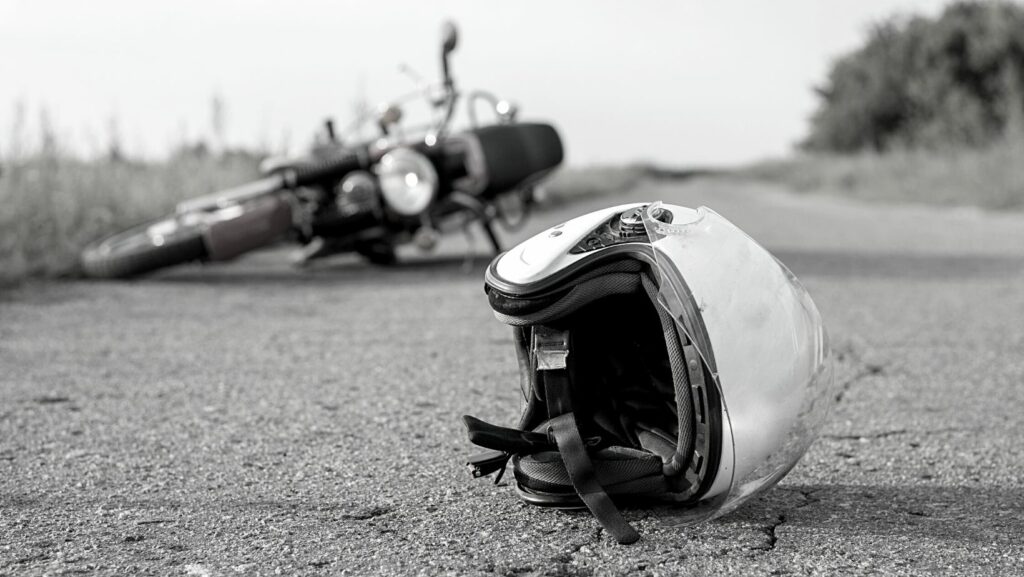If the news is anything to go by, Albuquerque is one of the most dangerous cities in the world for motorcyclists—and it’s only getting worse as time goes on. Is there something that makes Albuquerque a hotspot for motorcycle accidents? Have we just had an unlucky increase in accidents over the past few years? Or is it a narrative that doesn’t exist outside of the media? Let’s dig into the facts behind the claims and learn more about what you should do if you ever find yourself involved in a motorcycle accident.
 Image by Canva.com
Image by Canva.com
Does Albuquerque Have More Motorcycle Accidents?
The most important thing to remember about Albuquerque motorcycle accidents, like any kind of vehicular accident, is that there is an element of randomness behind it. It is impossible to predict exactly where or when an accident will occur, or who will be involved in one. While some factors lead to more accidents, like intoxication or poor weather, those factors alone don’t guarantee an accident.
Consequently, one of the best ways to understand motorcycle accidents is to examine the trends in accidents per year. However, one has to be cautious in interpreting these trends. The Albuquerque Journal wrote an article in 2021 that begins “[i]t’s dangerous out there,” before highlighting that motorcycle deaths were at a three-year high through the first half of the year, at 30, vs. 26 and 27 for the previous two years. While the number of motorcycle fatalities was up, it’s certainly not a significant trend. Between 2011 and 2020, New Mexico averaged 48.3 motorcycle fatalities per year, with a high of 64 in 2012 and a low of 38 in 2015. So, while 2021 was off to a more accident-prone start than other years, it falls well within the historical trend.
What’s more concerning is how New Mexico compares to the US as a whole. Thankfully, we only averaged 400 motorcycle fatalities annually between 2016 and 2020. However, that works out to 1.45 fatalities per 100 million vehicle miles traveled, compared to the US average of just 1.19. (The best states in the US average around .57 fatalities per 100 million miles traveled.)
And New Mexico doesn’t do any better in fatalities per 100,000 population, averaging 19.07 per year, compared to an average of 11.47, while the best states average just 4.2. It’s pretty easy to see from the stats that New Mexico is well below average when it comes to traffic safety, and that we have a long way to go to keep our streets safer.
While we don’t have numbers for Albuquerque, we can compare Bernalillo Country to the rest of the state. Between 2016 and 2020, Bernalillo averaged 16.8 motorcycle fatalities per year or 2.47 fatalities per 100,000 population. While that’s more than one death per month on average, the rate is lower than for New Mexico as a whole.
Why Are There So Many Motorcycle Accidents in Albuquerque?
While the rate of accidents in Albuquerque may be lower than for the state, there are still more accidents than we’d like to see. Why is that the case? Again, there is some randomness to accidents that makes it impossible to tease out an exact answer. One possible part of the answer is that adults are not required to wear helmets while riding motorcycles in New Mexico, though minors are. While there’s no definitive link between helmet wearing and accident rates, it’s possible that those who wear helmets are generally more cautious and thus less likely to get into accidents.
What we do know for certain is that wearing a helmet can save your life. According to the CDC, Helmets “reduce the risk of head injury by 69%” and “are 37 percent (for riders) and 41 percent (for passengers) effective in preventing deaths.” If you are going to ride, wearing a helmet is one of the most effective ways of keeping yourself safe.
However, there’s another factor likely at play. In 2020, 56 percent of all crashes occurred in urban areas, and while the remaining 43 percent occurred in rural areas. However, those numbers flipped for motorcycles, with 60 percent occurring in urban areas and only 38 percent occurring in rural areas. Albuquerque may see more motorcycle accidents than surrounding areas simply because it’s more urban.
 Image by Canva.com
Image by Canva.com
What Should You Do If You’re in a Motorcycle Accident?
If you’re ever in a motorcycle accident, some critical things need to happen to protect yourself. If you’re uninjured, you should check on the other party in the accident, call 9-1-1, and take pictures of the accident to provide a record of what happened. It can be difficult to know what to expect after a motorcycle accident, but one of the best things you can do is contact a lawyer that specializes in accident law. Your lawyer should know the next steps to take to ensure that your case has the best possible outcome, some of which need to be done within a few days of the accident, and if they aren’t completed, they may damage your case.
Of course, you may not be the motorcyclist in a motorcycle accident. Perhaps you were driving a vehicle that hit or was hit by a motorcyclist. In that case, you still need a lawyer. Even if you weren’t at fault, motorcycle accidents can be very serious, and you may have your work cut out for you to manage your liability. In that case, a lawyer is invaluable; the sooner you contact one, the better.
How Kane Helps with Motorcycle Accidents
If you’re in an accident like this, wouldn’t you want the best Albuquerque motorcycle accident attorney? Many attorneys out there will take your money, even if they don’t believe your case has a good chance of winning. That’s not us. We only get paid when you win, which means there’s no risk to you. To learn more about your options and next steps, reach out to Kane today for a free, no-obligation consultation.
Please note that this article was created for advertisement purposes, and it does not constitute any contractual legal relationship, nor imply one.
